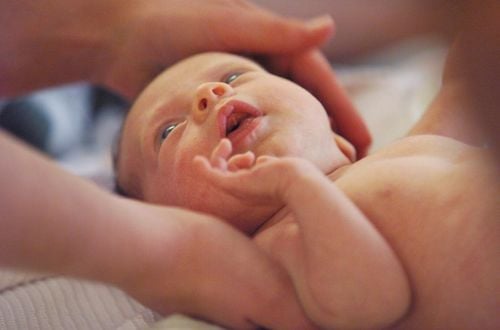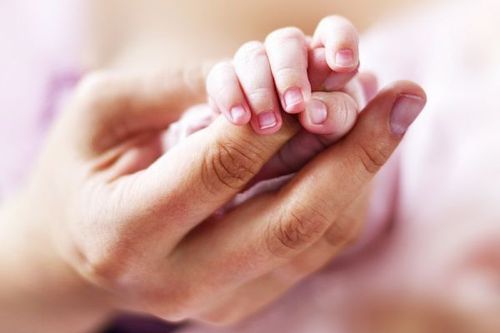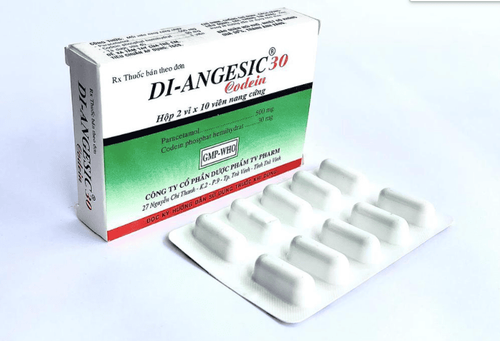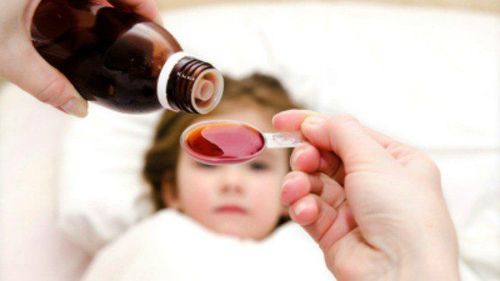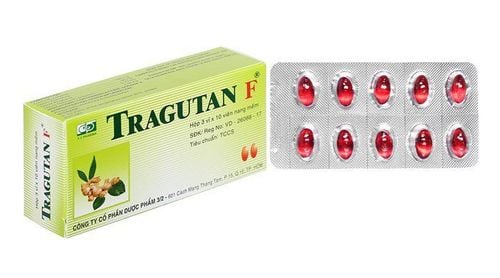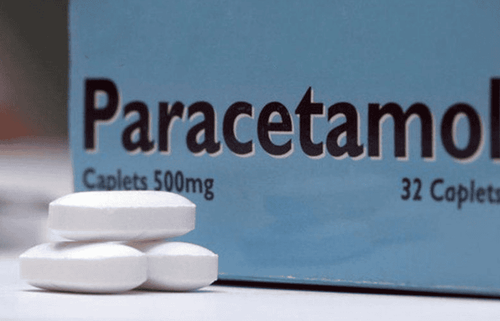This is an automatically translated article.
Neonatal infections are infections that occur in newborn babies until they are 28 days old. Illness is the second leading cause of infant mortality.
1. Prevention of neonatal infections
Before pregnancy:
Periodic health check-up, especially before planning to become pregnant, to detect inflammatory problems and other medical conditions for thorough treatment before pregnancy to avoid the risk of infection to baby, and at the same time limit the treatment during pregnancy. Pregnancy should be planned. Treating inflammatory diseases of the intimate area in both husband and wife before planning to have children.

Điều trị các bệnh lý viêm nhiễm vùng kín ở cả hai vợ chồng trước khi có ý định sinh con
During pregnancy:
Periodic examination during pregnancy as prescribed to detect abnormalities early and have the best treatment. Complete immunizations during pregnancy. If you see any abnormalities during pregnancy such as vaginal discharge with an unusual odor, color, odor, itching in the private area, you must see a doctor immediately, do not arbitrarily handle or use drugs without indications. doctor because it can affect the fetus. Eat a nutritious diet under the guidance of your doctor to ensure the health and resistance of both mother and baby. Take good care of hygiene for pregnant women. Follow and take care of mothers according to the doctor's instructions to limit the risk of premature birth, premature rupture of membranes or prolonged labor. During delivery:
Prepare the delivery room and birth-support tools to ensure sterility to minimize the risk of infection to the newborn through tools, caregivers' hands or infection in the room. born. The birth process must be carried out by highly qualified people to avoid obstetric complications such as trauma to the mother and baby. This can also increase the risk of passing the bacteria on to the baby during birth. After birth:
The mother ensures hygiene when caring for the newborn: wash her hands before and after touching the baby. This is very important in preventing and limiting the possibility of bacterial infection for children. For newborns, special attention should be paid to the care of the skin, navel and eyes because at this stage, these areas are very sensitive and easily infected with bacteria. Ensure the cleanliness of the room as well as the furniture and tools that can come into contact with children. Breastfeed your baby for at least the first 6 months to ensure adequate nutrition and strengthen the child's resistance. Fully vaccinated children. For high-risk cases such as prolonged labor, rupture of membranes over 18 hours, amniotic fluid infection, etc., give the child antibiotics to prevent infection according to the doctor's instructions.
2. Care plan for neonatal sepsis
2.1 Objectives of Care To provide the best possible care for the child, all care needs to achieve the following:
Ensure aseptic conditions. Nutrition for children. Ensure breathing. Stabilize body temperature. Regular close monitoring to limit possible complications, and timely detection of changes in children to take action.
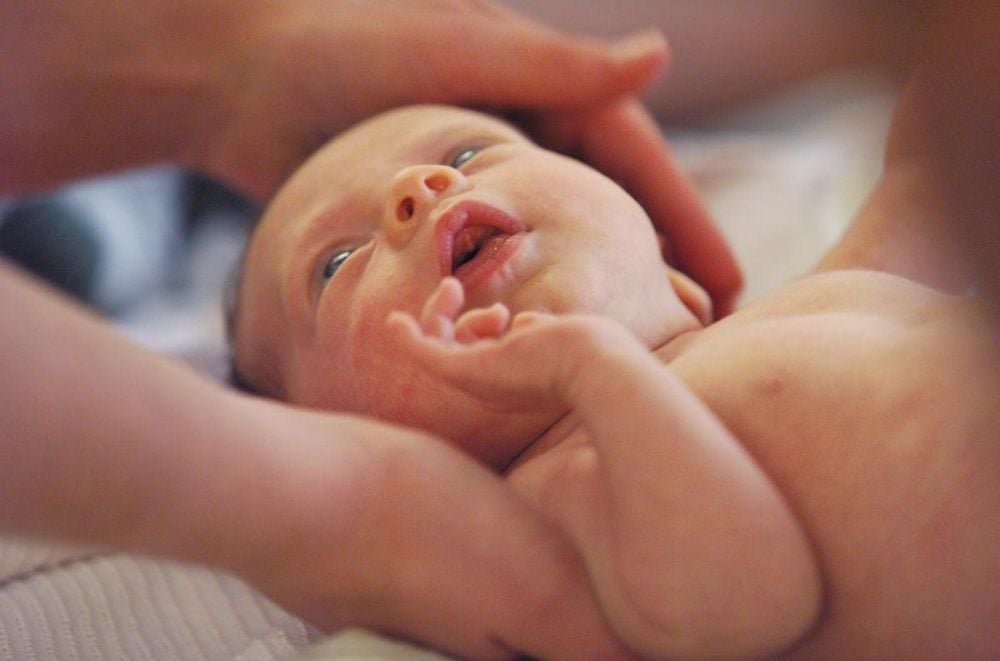
Đặt ra kế hoạch chăm sóc trẻ nhiễm trùng sơ sinh để đặt được hiệu quả chăm sóc tốt nhất cho trẻ
2.2 Things to pay attention to when taking care of infants with bacterial infections Convenient medical records for treatment include: Date and time of monitoring, vital signs such as breathing rate, temperature, blood pressure, heart rate, monitoring of consciousness...
Respiration : Counting breaths , observe the breathing pattern. If the child shows signs of apnea, it is necessary to notify the doctor soon to have a timely indication to restore the child's breathing: Either give oxygen, or breathe NCPAP, or use medicine....Combined with suction of mucus if the child has sputum in the airways that obstructs breathing.
Temperature :
Measure temperature regularly, recheck every 6-8 hours. Maintain room temperature according to the weight and age of the child. Remember to change diapers every time your baby vomits or urinates to ensure hygiene and avoid wetness, which can easily cause the child to have a higher fever. Let the baby lie in a well-ventilated room, apply warm compresses regularly on the forehead and armpits for the child. If the child has a high fever over 38 degrees, give fever-reducing medicine as prescribed by the doctor. Special attention should be paid to the case of premature babies who need to be placed in an incubator. Carry out testing or medication for pediatric patients according to the doctor's orders with the principle of 3, 5 for.
Timely notification of children's developments.
Follow the principle of aseptic in contact especially when doing procedures with pediatric patients.
Arrange for children who are infected or at risk of infection to stay in separate rooms to avoid cross-contamination.
For mothers and relatives:
Coordinate with medical staff to monitor and take care of children.
Do not let children share items with sick children.
Ensure hygiene when taking care of the baby, simple even in breastfeeding.
Breastfeed your baby several times a day.
Note for children with indications for nasogastric tube placement: Care for the child to eat according to the instructions of the medical staff, monitor for signs of abnormalities in the child such as choking, pain... and abnormalities. at sonde.
Take good care of the baby's navel area:
Keep the navel dry and clean, avoid moisture. Clean the umbilical cord with an antiseptic solution in the order from the base of the umbilical cord to the umbilical cord body, clamp the umbilical cord and then the umbilical cord section. If the navel has pus-filled inflammation, redness of the surrounding skin, it is necessary to notify the doctor so that it can be handled promptly, do not arbitrarily give the child medication or remove the pus from the umbilicus. Bathe the child properly, bathe with a soft towel, warm water, bathe in a room with a temperature of 28-30 degrees Celsius, do not bathe the child for too long, bath each part of the body.
In addition to hygiene and care issues for children, mothers and those who have direct contact with children must also ensure their own hygiene to avoid becoming a path of infection for children.
2.2.2 Care after discharge Educate mothers on the home use of medications for infants with neonatal sepsis.
Instructing mothers on hygiene and proper nutrition for their children.
Encourage mothers to vaccinate their children fully and on time as prescribed.
Instruct mothers to take their baby for re-examination on time as required by the doctor.
After discharge from the hospital, if your baby has one of the following symptoms, go to the doctor immediately: difficulty breathing, fever, convulsions, diarrhea, umbilical cord inflammation, stop feeding,...
Bacterial infection in the child Newborn is a condition that often occurs in young children due to many factors that are directly related to the hygiene of both mother and baby. Therefore, mothers should understand the disease as well as how to prevent it to minimize the risk of disease for children.
As a key area of Vinmec Health system, Pediatrics Department always brings satisfaction to customers and is highly appreciated by industry experts with:
Gathering a team of top doctors and nurses in Pediatrics : consists of leading experts with high professional qualifications (professors, associate professors, doctorates, masters), experienced, worked at major hospitals such as Bach Mai, 108.. Doctors All doctors are well-trained, professional, conscientious, knowledgeable about young psychology. In addition to domestic pediatric specialists, the Department of Pediatrics also has the participation of foreign experts (Japan, Singapore, Australia, USA) who are always pioneers in applying the latest and most effective treatment regimens. . Comprehensive services: In the field of Pediatrics, Vinmec provides a series of continuous medical examination and treatment services from Newborn to Pediatric and Vaccine,... according to international standards to help parents take care of their baby's health from birth to childhood. from birth to adulthood Specialized techniques: Vinmec has successfully deployed many specialized techniques to make the treatment of difficult diseases in Pediatrics more effective: neurosurgery - skull surgery, stem cell transplantation. blood in cancer treatment. Professional care: In addition to understanding children's psychology, Vinmec also pays special attention to the children's play space, helping them to have fun and get used to the hospital's environment, cooperate in treatment, improve the efficiency of medical treatment.
Please dial HOTLINE for more information or register for an appointment HERE. Download MyVinmec app to make appointments faster and to manage your bookings easily.




